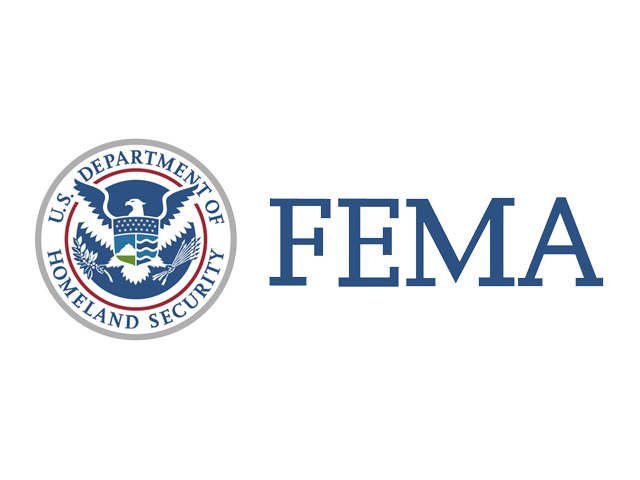 Poll Conducted by The Institute for Policy and Opinion Research: Former Vice President Joe Biden holds an 11-percentage point lead over President Donald Trump (53%-42%) in Virginia with less than a week before Election Day, according to The Roanoke College Poll. Over 90% of those who support either candidate are very certain of their vote intention, and almost half (48%) have already cast their ballot. The size of the lead has not changed significantly since first polled in May. U.S. Senator Mark Warner leads his Republican opponent Daniel Gade (55%-39%). The Institute for Policy and Opinion Research interviewed 802 likely Virginia voters[1] between October 23 and October 29 and has a margin of error of+3.5%.
Poll Conducted by The Institute for Policy and Opinion Research: Former Vice President Joe Biden holds an 11-percentage point lead over President Donald Trump (53%-42%) in Virginia with less than a week before Election Day, according to The Roanoke College Poll. Over 90% of those who support either candidate are very certain of their vote intention, and almost half (48%) have already cast their ballot. The size of the lead has not changed significantly since first polled in May. U.S. Senator Mark Warner leads his Republican opponent Daniel Gade (55%-39%). The Institute for Policy and Opinion Research interviewed 802 likely Virginia voters[1] between October 23 and October 29 and has a margin of error of+3.5%.
Fully 97% of Democrats said they would vote for Biden, while 91% of Republicans said they would vote for Trump. Only 1% of Democrats said they would cross over to vote for Trump while 6% of Republicans said they plan to vote for Biden. Overall, only 2% said they were undecided about their vote, and 3% said they would vote for another candidate. Biden and Warner hold very large leads among those who have already voted, while Trump and Gade lead among those who still plan to vote.
Likely voters also favor amending the state Constitution to create a bipartisan commission to draw Congressional and state legislative districts by a 48%-26% margin.
Trump, Biden, the U.S. Senate race, election controversies, and the Nation
A majority of likely voters (56%) disapprove of the way President Trump is handling his job, while just 41% approve, a slight improvement for the President since August.Trump’s favorable/unfavorable rating is 41%/56% while Biden is at 53%/43%.
Almost two-thirds (63%) of respondents think the country is on the wrong track (down from the 79% record high in the August Roanoke College Poll), while only 30% think it is headed in the right direction.
Likely voters see the economy and COVID (both at 29%) as the most important issues in the election ahead of civil unrest (15%), race relations (11%), and Supreme Court nominations (6%).
Mark Warner’s favorable rating is 53% while his unfavorable is up to 33%. Daniel Gade, his Republican challenger, remains unfamiliar to almost half the electorate (46%), but his favorable rating (31%) is higher than his unfavorable (19%), both up about 10% from August.
Just under two-thirds of likely voters (65%) are at least somewhat confident that the votes across the country will be accurately counted, and 58% are at least somewhat confident that the nation will accept the official outcome and winners of the election. Still, about one-third say they are not too confident or not confident at all about accurate vote counting or acceptance of the outcome.
Analysis
“Biden has maintained a consistent double-digit lead over Trump in Virginia since May, and time has just about run out for Trump,” said Dr. Harry Wilson, director of the Roanoke College Poll. “Trump’s job approval and favorable/unfavorable numbers have changed little in more than two years in the Roanoke College Poll. It is difficult to see a path to victory for him in the Commonwealth in 2020 even if more Republicans ‘come home’ on Election Day.”
“Senator Warner has a comfortable margin at this point with a healthy lead, a positive favorable rating, and an opponent in Daniel Gade who remains largely unknown to many voters,” Wilson said.
“Baseball manager (and former player) Yogi Berra once quipped, ‘It ain’t over ‘til it’s over.’ Berra’s New York Mets were in last place when he uttered the now-famous line in 1973, and they came back to win their division,” Wilson said. “Republicans need to hope for another Berra quote, ‘it’s déjà vu all over again.’”
Methodology
Interviewing for The Roanoke College Poll was conducted by The Institute for Policy and Opinion Research at Roanoke College in Salem, Va. Between Oct. 23 and Oct. 29, 2020. A total of 802 likely voters in Virginia were interviewed. Telephone interviews were conducted in English with polling support provided by Reconnaissance Market Research. The sample was drawn from a list of registered voters compiled by L2 Political, a non-partisan provider. Participants were sampled from that list, which has phone numbers associated with approximately 76% of the registered voters in Virginia. The list included both landlines and cellphones. Cellphones constituted 62% of the completed interviews.
Questions answered by the entire sample of 802 residents are subject to a sampling error of plus or minus approximately 3.5% at the 95% level of confidence. This means that in 95 out of 100 samples like the one used here, the results obtained should be no more than 3.5 percentage points above or below the figure that would be obtained by interviewing all Virginia likely voters who have a home telephone or a cellphone. Where the results of subgroups are reported, the sampling error is higher.
Quotas were used to ensure that different age groups and regions of the Commonwealth were proportionately represented. The data were statistically weighted for gender, race, education, and political party. Weighting was done to match the 2016 Virginia statewide election exit poll. The margin of error was not adjusted for design effects due to weighting. The design effect was 1.098 which would increase the margin of error to plus or minus 3.6%.



